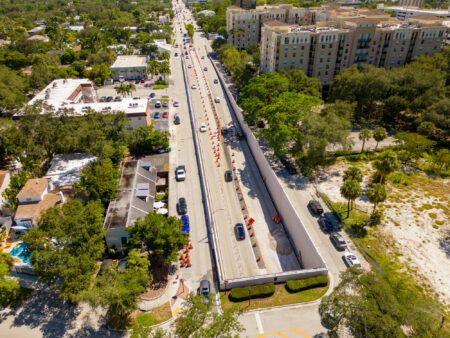A joint venture (JV) between two leading transportation consultancies, WSP | Parsons Brinckerhoff (WSP-PB) and Cambridge Systematics, has been selected by the USA’s National Academies of Sciences, Engineering, and Medicine (National Academies) to support the future interstate study mandated in Fixing America’s Surface Transportation Act of 2015 (FAST Act).
The FAST Act calls for the National Academies’ Transportation Research Board (TRB) to conduct ‘a study on the actions needed to upgrade and restore the Dwight D Eisenhower National System of Interstate and Defense Highways to its role as a premier system that meets the growing and shifting demands of the 21st century’. The USA’s Interstate highway system comprises only 1.2% roadway lane-miles of the country’s public road system, but it handles nearly 25% of the total vehicle miles traveled annually, and almost 40% of the nation’s total truck traffic. With a network that has changed little since its inception, the aging interstate highway system serves more traffic than the entire US road network served when the system was authorized in 1956 (below).
The TRB study will be conducted by a committee of the National Academies with balanced expertise in transportation issues. In support of the future interstate study, the joint venture of Cambridge Systematics and WSP-PB will conduct case study analysis and modeling to explore the impact of changing travel and technology trends, and their implications for the future of the interstate highway system. The study will also draw from information provided by the highway industry, including highway owners, operators and users of the system, associations, private-sector stakeholders and academia, among others. The study is expected to be completed in late 2018.
WSP-PB is one of the world’s leading engineering and professional services consultancies, with expertise ranging from urban planning to infrastructure construction and designing sustainable transport networks, conducted through more than 500 offices across 40 countries. Based in Massachusetts, and with 12 offices across the USA, Cambridge Systematics specializes in transportation issues and is a recognized leader in the development of innovative policy and planning solutions, objective analysis and technology applications.




